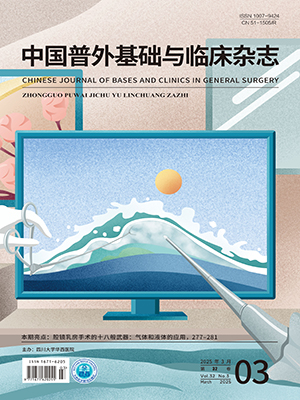ObjectiveTo evaluate the effects of high intensity focused ultrasound (HIFU) on hepatic cancer cells spreading in blood.Methods AFP mRNA in peripheral blood of 19 patients with hepatocellular carcinoma was detected before and after HIFU therapy by RTPCR.Results①Before HIFU therapy, 11 of 19 cases were AFP mRNA positive (57.9%), while the control group were all negative. AFP mRNA was correlated with some clinical parameters such as serum AFP level, tumor size, portal vein embolism and extrahepatic metastasis (P<0.05). ②In 8 cases with preoperative AFP mRNA negative, only 2 cases became AFP mRNA positive immediately after therapy, and one of the 2 cases became negative again after 72 hours. One week after HIFU therapy, the AFP mRNA positive rate (31.6%) was much lower than the preoperative positive rate (57.9%), but there was no statistical significance (P gt;0.05). ③After one week of HIFU therapy, the AFP mRNA positive rate of the group with tumor size less than 8 cm was much lower than that of tumor size larger than 8 cm (P<0.05). ConclusionHIFU may reduce the spreading of hepatocellular carcinoma cells in blood. It is effective for patients with tumor size less than 8 cm.
Citation: LI Fuyu,LIU Hong,LONG Quanyi,JIANG Lisheng,XIU Ruihua. Effects of High Intensity Focused Ultrasound on AFP mRNA in Peripheral Blood of Patients with Hepatocellular Carcinoma. CHINESE JOURNAL OF BASES AND CLINICS IN GENERAL SURGERY, 2004, 11(3): 247-249. doi: Copy
Copyright © the editorial department of CHINESE JOURNAL OF BASES AND CLINICS IN GENERAL SURGERY of West China Medical Publisher. All rights reserved




